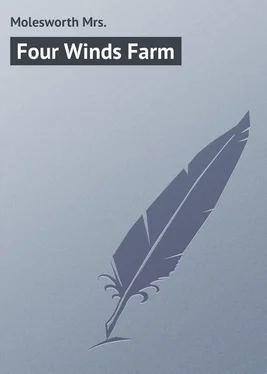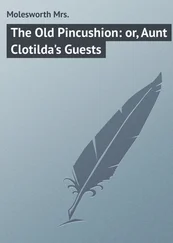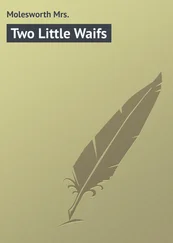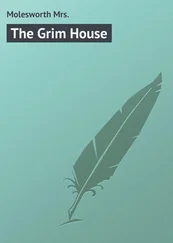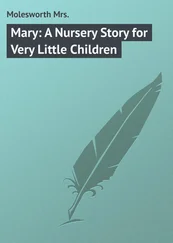Mrs. Molesworth - Four Winds Farm
Здесь есть возможность читать онлайн «Mrs. Molesworth - Four Winds Farm» — ознакомительный отрывок электронной книги совершенно бесплатно, а после прочтения отрывка купить полную версию. В некоторых случаях можно слушать аудио, скачать через торрент в формате fb2 и присутствует краткое содержание. Жанр: foreign_prose, на английском языке. Описание произведения, (предисловие) а так же отзывы посетителей доступны на портале библиотеки ЛибКат.
- Название:Four Winds Farm
- Автор:
- Жанр:
- Год:неизвестен
- ISBN:нет данных
- Рейтинг книги:5 / 5. Голосов: 1
-
Избранное:Добавить в избранное
- Отзывы:
-
Ваша оценка:
- 100
- 1
- 2
- 3
- 4
- 5
Four Winds Farm: краткое содержание, описание и аннотация
Предлагаем к чтению аннотацию, описание, краткое содержание или предисловие (зависит от того, что написал сам автор книги «Four Winds Farm»). Если вы не нашли необходимую информацию о книге — напишите в комментариях, мы постараемся отыскать её.
Four Winds Farm — читать онлайн ознакомительный отрывок
Ниже представлен текст книги, разбитый по страницам. Система сохранения места последней прочитанной страницы, позволяет с удобством читать онлайн бесплатно книгу «Four Winds Farm», без необходимости каждый раз заново искать на чём Вы остановились. Поставьте закладку, и сможете в любой момент перейти на страницу, на которой закончили чтение.
Интервал:
Закладка:
The schoolmaster looked at him. It was a curious question for a boy of nine years old.
"Yes," he said, "I hope so, indeed," and his mind went back to a time when he had looked forward to being something very different from a village schoolmaster, when he could have fancied no employment could be less to his liking than teaching. "I hope so, indeed," he repeated. "And if you work with a will you – get to like the work whatever it is."
"Thank you, sir," said the boy, and the master turned away. Then a thought struck him.
"What do you best like doing, Gratian?"
The boy hesitated. Then he grew a little red.
"It isn't doing anything really," he said; "it's what mother calls dreaming – out on the moors, sir, that's the best of all – with the wind all about, and nothing but it and the moor and the sky. And the feel of it keeps in me. Even when I'm at home in the kitchen by the fire, if I shut my eyes I can fancy it."
The master nodded his head.
"Dreaming is no harm in its right place. But if one did nothing but dream, the dreams would lose their colour, I expect."
"That's something like what they said, again," thought the boy to himself.
The schoolmaster walked away. "A child with something uncommon about him, I fancy," he said in his mind. "One sees that sometimes in a child living as much alone with nature as he does. But I scarcely think he's clever, and then the rough daily life will most likely nip in the bud any sort of poetry or imagination that there may be germs of."
He didn't quite understand Gratian, and then, too, he didn't take into account what it is to be born under the protection of the four winds of heaven.
But Gratian felt much happier after his talk with the master, and afternoon lessons went better. They were generally easier than the morning ones, and often more interesting. This afternoon it was a geography lesson. The master drew out the great frame with the big maps hanging on it, and explained to the children as he went along. It was about the north to-day, far away up in the north, where the ice-fields spread for hundreds of miles and everything is in a sleep of whiteness and silence. And Gratian listened with parted lips and earnest eyes. He seemed to see it all. "I wish I knew as much as he does," he thought. "I wish I could read it in books to myself."
And for the first time there came home to him a faint, shadowy feeling of what books are – of the treasures buried in the rows and rows of little black letters that he so often wished had never been invented.
"Yes," he said to himself, "I'll try to learn so that I can read it all to myself."
It was growing already a little dusk when he set off on his walk home. The evenings were beginning "to draw in" as the country folk say.
But little cared the merry throng who poured out of the schoolroom gate as five o'clock rang from the church clock, chattering, racing, tumbling over each other, pushing, pulling, shouting, but all in play. For they are a good-natured set, though rough and ready – these hardy moor children. And they grow into honest and sturdy men and women, hospitable and kindly, active and thrifty, though they care for little beyond their own corner of the world, and would scarcely find it out if all the books and "learning" in existence were suddenly made an end of.
There are mischievous imps among them, nevertheless, and none was more so than Tony, the miller's son. He meant no harm, but he loved teasing, and Gratian, gentle and silent, was often a tempting victim. This evening, as sometimes happened, a dozen or so of the children whose homes lay at the end of the village, past which was the road to the Farm, went on together.
"We'll run a bit of the road home with thee, Gratian," said Tony.
And though the boy did not much care for their company, he thought it would be unfriendly to say so, nor did he like to refuse when Tony insisted on carrying his satchel for him. "There's no books in mine," he said; "I took them home at dinner-time, and I'm sure your shoulders will be aching before you get to the Farm with the weight of yours. My goodness, how many books have you got in it? I say," as he pretended to examine them, "here's Gratian Conyfer going to be head o' the school, and put us all to shame with his learning."
But as Gratian said nothing he seemed satisfied, and after stopping a minute or two to arrange the satchel again, ran after the others.
"It's getting dark, Tony," said his sister Dolly, "we mustn't go farther. Good-night, Gratian, we've brought you a bit of your way – Tony, and Ralph, and I," for the other children had gradually fallen off.
"Yes – a good mile of it, thank you, Dolly. And thank you, Tony, for helping me with my satchel – that's right, thank you," as Tony was officiously fastening it on.
"Good-night," said Tony; "you're no coward any way, Gratian. I shouldn't like to have all that way to go in the dark, for it will be dark soon. There are queer things to be seen on the moor after sunset, folks say."
"Ay, so they say," said Ralph.
"I'll be home in no time," Gratian called back. For he did not know what fear was.
But after he had ran awhile, he felt more tired than usual. Was it perhaps the fit of crying he had had at dinner-time that made him so weary? He plodded on, however, shifting his satchel from time to time, it felt so strangely heavy, and queer tales he had heard of the little mountain man that would jump on your shoulders, and cling on till he had strangled you, unless you remembered the right spell to force him off with; or of the brownies who catch children with invisible ropes, and make them run round and round without their knowing they have left the straight road, till they drop with fatigue, came into his mind.
"There must be something wrong with my satchel," he said at last, and he pulled it round so that he could open it. He drew his hand out with a cry of vexation and distress. Tony, yes it must have been Tony – though at first he was half-inclined to think the mountain men or the brownies had been playing their tricks on him – Tony had filled the satchel with heavy stones, and had no doubt taken out the books at the time he was pretending to examine them. It was too bad. And what had he done with the books?
"He may have taken them home with him, he may have hidden them and get them as he passes by, or he may have left them on the moor, and if it rains they'll be spoilt, and the copy-books are sure to blow away."
For in his new ardour, Gratian had brought home books of all kinds, meaning to work so well that his master should be quite astonished the next day, and the poor little fellow sat down on the heather, his arms and shoulders aching and sore, and let the tears roll down his face.
Suddenly a slight sound, something between a murmur and a rustle, some little way from him, made him look round. It was an unusually still evening; Gratian had scarcely ever known the moorland road so still – it could not be the wind then! He looked round him curiously, and for a moment or two forgot his troubles in his wonder as to what it could be. There it was, again, and the boy started to his feet.
CHAPTER III
FLYING VISITS
"I see thee not, I clasp thee not;
Yet feel I thou art nigh."
Yes – he heard it again, and this time it sounded almost like voices speaking. He turned to the side whence it came, and to his surprise, in the all but darkness, there glimmered for an instant or two a sudden light. It was scarcely indeed to be called light; it was more like the reflection of faint colour on the dark background.
"It is like a black rainbow," said Gratian to himself. "I wonder if there are some sorts of rainbows that come in the night. I wonder – " but suddenly a waft of soft though fresh air on his cheek made him start. All around him, but an instant before, had been so still that he could not understand it, and his surprise was not lessened when a voice sounded close to his ear.
Читать дальшеИнтервал:
Закладка:
Похожие книги на «Four Winds Farm»
Представляем Вашему вниманию похожие книги на «Four Winds Farm» списком для выбора. Мы отобрали схожую по названию и смыслу литературу в надежде предоставить читателям больше вариантов отыскать новые, интересные, ещё непрочитанные произведения.
Обсуждение, отзывы о книге «Four Winds Farm» и просто собственные мнения читателей. Оставьте ваши комментарии, напишите, что Вы думаете о произведении, его смысле или главных героях. Укажите что конкретно понравилось, а что нет, и почему Вы так считаете.
